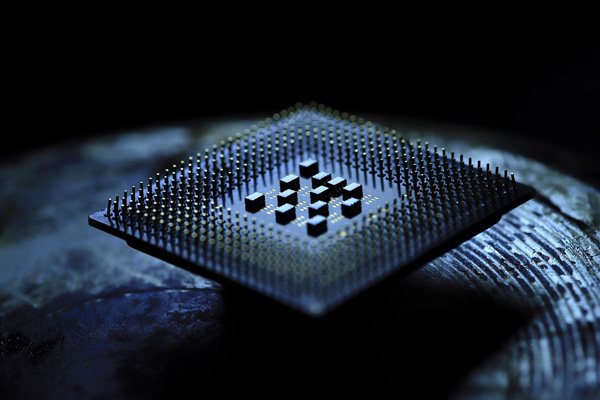Google’s quantum echoes demonstrates verifiable quantum advantage

[Future Science And Technology. Photo Credit to Pixabay]
For decades, scientists have pursued the elusive goal of quantum advantage, the point at which quantum computers can outperform the most powerful classical machines.
On October 22, 2025, Google’s Quantum AI team made a groundbreaking announcement: their Willow quantum chip had achieved verifiable quantum advantage, marking a significant milestone toward that goal.
The new algorithm called Quantum Echoes allowed the system to operate approximately 13,000 times faster than the best classical supercomputers for the same task.
This is notable because it’s verifiable, meaning other quantum devices could, in theory, reproduce and confirm the experiment.
Quantum Echoes examines how information becomes scrambled in a quantum system, like the butterfly effect in chaos theory.
The experiment involved 65 qubits going through a series of random operations.
One qubit was slightly tweaked, and the process was run in reverse to see how the change propagated through the system.
The algorithm calculated an out-of-time-order correlator, or OTOC, which measures how quickly information spreads in a quantum state.
The Willow chip was able to reconstruct this signal faster and more accurately than any known classical method, demonstrating a clear computational advantage.
This breakthrough is significant because it brings quantum research closer to solving real-world challenges.
Earlier quantum supremacy demos solved artificial puzzles with little connection to real-world applications.
Quantum Echoes is directly related to the physics of materials, molecular structures, and magnetic resonance imaging.
Understanding information scrambling could help scientists simulate complex molecules, study superconductors or analyze atomic spins, all of which are tasks that classical computers struggle to handle at scale.
As quantum hardware improves, algorithms like Quantum Echoes could eventually help design new drugs, catalysts, and battery materials by modeling the behavior of atoms and electrons in ways that are currently impossible to calculate.
However, some details of the announcement should be interpreted with caution.
The 13,000 times faster applies to a specific benchmark and doesn’t mean quantum computers are generally faster than classical ones.
The achievement addresses a single, well defined problem where the best existing classical simulation would take exponentially longer to solve.
While Google states its findings are verifiable, no independent lab has yet replicated the experiment on another quantum device.
Scientists in Science News and Nature acknowledged the achievement but said confirmation will depend on replication, error correction and future comparisons with classical algorithms.
Next up for the field is the development of logical qubits that can correct errors and maintain coherence for longer.
Reliable logical qubits will enable deeper and more precise calculations and turn early demos like Quantum Echoes into real scientific tools.
We’ll be watching for other teams to reproduce the work, for follow-up studies that connect these quantum calculations to measurable chemical or physical data, and for steady progress toward fault-tolerant devices that can run reliably at scale.
Quantum Echoes does not mean quantum computers will start designing medicines or breaking internet encryption.
However, it represents a real shift in the quantum computing story.
The experiment shows that the hardware and algorithms are starting to line up so scientists can ask real and verifiable questions about the nature of the universe rather than just perform abstract demonstrations.
For the first time, a quantum device has demonstrated both speed and a pathway to verification, the two things essential for real scientific confidence.
As these findings continue to be tested and refined, the promise of quantum computation is transitioning from theory to practical scientific use.

- Esther Kim / Grade 11 Session 11
- Lexington High School

![THE HERALD STUDENT REPORTERS [US]](/assets/images/logo_student_us.png)
![THE HERALD STUDENT REPORTERS [Canada]](/assets/images/logo_student_ca.png)
